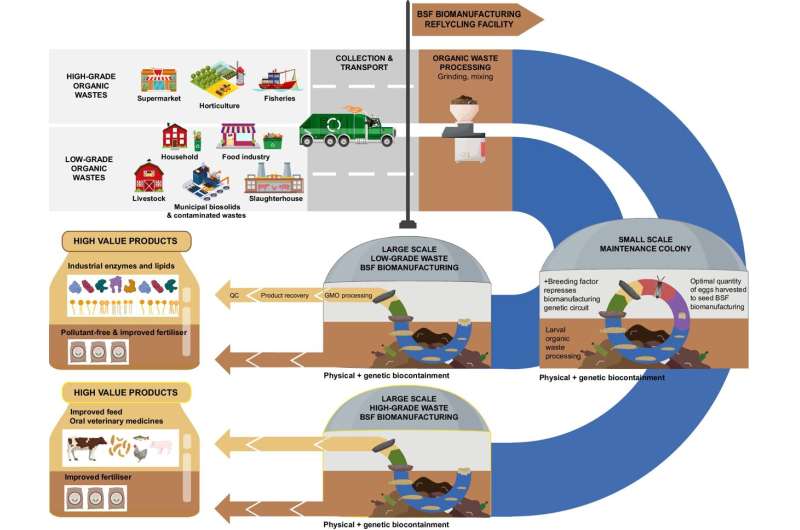Reduce, reuse, reflycle: How genetically modified flies can reduce waste and keep it out of landfills
Date: 29.7.2024
A Macquarie University team proposes using genetically engineered black soldier flies (Hermetia illucens) to address worldwide pollution challenges and produce valuable raw materials for industry, including the USD $500 billion global animal feed market.
 "One of the great challenges in developing circular economies is making high-value products that can be produced from waste," says Dr. Kate Tepper, lead author of the paper and a Postdoctoral Research Fellow at Applied BioSciences, Macquarie University. An estimated 40% to 70% of global organic waste finds its way to landfills. "The landfilling of organic waste creates about 5% of annual global greenhouse gas emissions and we need to get this to 0%," Dr. Tepper says.
"One of the great challenges in developing circular economies is making high-value products that can be produced from waste," says Dr. Kate Tepper, lead author of the paper and a Postdoctoral Research Fellow at Applied BioSciences, Macquarie University. An estimated 40% to 70% of global organic waste finds its way to landfills. "The landfilling of organic waste creates about 5% of annual global greenhouse gas emissions and we need to get this to 0%," Dr. Tepper says.
Black soldier flies are already valued in waste management where they consume commercial organic wastes before being processed as "insect biomass" into foods for domestic pets and commercial chicken and fish farmers. But the Macquarie team believes genetic engineering could extend the usefulness of the black soldier fly, enabling them to turn waste inputs into enhanced animal feeds or valuable industrial raw materials.
The larvae could bio-manufacture industrial enzymes currently for use in livestock, textile, food and pharmaceutical industries and represent a global market worth billions of dollars annually. The flies can also be engineered to generate specialized lipids for use in biofuels and lubricants, replacing fossil-fuel derived products.
Image source: Tepper et al. (2024), Communications Biology.























